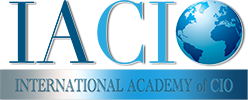16th Waseda University – International Academy of CIO World Digital Government Ranking 2021 Survey Results Announced
Download the 2021 Waseda IAC Digital Government Press Release (PDF)
Download the 2021 Waseda IAC Digital Government Rankings Report (PDF)
Introduction
The Institute of Digital Government at Waseda University in Japan, in cooperation with the International Academy of CIO (IAC) has released the 16th Waseda IAC World Digital Government Rankings Survey 2021, which marks digital transformation in 64 countries/economies. The Institute was established in 2002, and the ranking survey model was created in 2005 by Prof. Dr. Toshio Obi, a Founder of the Institute and President of IAC at the time of the First Ranking Survey. Dr. Obi was awarded a spot on “The World’s Most Influential 100 People in Digital Government in 2018” by “Apolitical”,a UK based Think tank. In 2021, both the Institute and the ranking survey are mainly managed by Prof. Dr. Naoko Iwasaki of Waseda University.
We hope this survey will be able to contribute excellent values globally to all parties concerned. We have now unfortunately suffered from the serious COVID-19 pandemic all over the world for a couple of years, and we are sure that Digital Government can offer effective solutions regarding the pandemic issues. It is well noted that this edition is extremely significant in the process of promoting SDGs. In addition , the 16th memorial anniversary ranking report is well associated with both digital innovation and transformation.
We appreciate Research Fellows headed by Dr.Hien at APEC Digital Government Research Center for their great contribution as well as Researchers of the Institute of Digital Government at Waseda University and International experts in 11 worldwide universities of IAC listed in the contributors corner.
Drs Toshio Obi and Naoko Iwasaki
Waseda University
December, 2021
Preface
The Institute of D-government, Waseda University in cooperation with IAC(International Academy of CIO) has published the “16th Waseda-University-IAC World Digital Government Rankings 2021”. Digital government is required to act as a catalyst for digital administrative and financial reforms and contribute to significant cost reductions and administrative DX. Full-scale promotion and development are indispensable as a starting point for economic growth / innovation strategies and strengthening international competitiveness. This survey analysis evaluates the progress of digital governments in 64 advanced ICT countries from multiple perspectives using 10 major indicators and 35 sub-indicators, which models were created by Dr. Obi. It is trusted by related organizations around the world including APEC and has a high degree of contribution to the digital society.
The “World Digital Government Ranking 2021” explains the comprehensive achievements and historical transitions of digital governments in 64 ICT-developed countries/economies around the world. This ranking has attracted attention from all over the world as the world’s two largest evaluations, along with the United Nations ranking. While this ranking is announced annually, the United Nations ranking publishes on three indicators every other year.
The top ten countries/economies of this 16th survey were Denmark in first place, Singapore in second place, and the United Kingdom in third place. The United States was fourth, Canada was fifth, Estonia was sixth, New Zealand was seventh, South Korea was eighth, Japan was ninth, and Taiwan was tenth.
In addition to explaining the rankings and describing each item and region, overarching themes and trends, such as the progress of the world’s digital government over the past 16 years, changes in overall rankings, rankings by sector index, rankings by region, and new trends of interests are all summarized in this report. The structural weaknesses of major countries/economies includes the vertically divided administration of government offices exposed in response to Covid-19, the separation of e-government (central) and e-government (local), the financial and digital divides among local governments, and the shortage of ICT human resources.
Looking ahead to the future with a declining birthrate, an aging society, and, public-private integration and open innovation through digital utilization will greatly contribute not only to cost reduction and efficiency improvement of administrative and financial reforms, but also to improve the convenience of people’s lives.
The top priority of the digital government in the future will be to shift to a new lifestyle and promote administrative DX through vigorous and rapid digitization. It is also important to protect the stability, security and safety of people’s lives by providing economic revitalization and high-quality administrative services. It is important to aim for overall optimization by digitizing central and local areas, not just individual optimization. In that sense, the role of the digital chief, CIO, who has a strong decision-making ability, will also attract attention. Furthermore, the integration power of the world’s three major advanced technologies “5G, AI, 8K” will be the basis of global innovation and digital growth strategy for overcoming the COVID-19 with recession.
This survey discusses the causes of delays, strengths and weaknesses, the significance of the digital government and the future image of digitalization through international comparison and summarizes the issues and recommendations. This report can be used as a “global textbook” for creating new digital strategy amid reducing growing uncertainty due to the COVID-19 disaster. This evaluation model was developed in 2005 by Prof. Dr. Toshio Obi (since 2018, he is a Professor Emeritus, Waseda University), the first Director of the Institute. Dr. Obi received the Minister of Internal Affairs and Communications distinguished Award in 2015 and also 2018.
The Institute also serves as the APEC Digital Government Research Center, which was created by APEC in 2005. The World Digital Government Ranking Evaluation, which celebrates its 16thanniversary this year, is at the core of international collaboration in Digital government research as a means of providing policy support materials to industry-government-academia leaders in each Country/economy.
The IAC (International Academy of CIO), a global NPO organization, represents affiliated universities and academic organization in order to obtain the latest and most accurate information and analyze and evaluate data. We have formed a joint international team by international distinguished experts from the following academic Institutions for many years.
A joint research and advisory group has been founded from the distinguished experts of collaborating universities among IAC members. These are National University of Singapore (Singapore), Peking University (China), George Mason University (USA), Bocconi University (Italy), Turku University (Finland), Thammasat University (Thailand), The Russian Presidential Federation Academy of National Economics and Public Administration (Russia), LaSalle University (Philippines), Bandung Institute of Technology (Indonesia), Taiwan e-Governance Research Center (Taiwan), and Waseda University which is a coordinating body.

